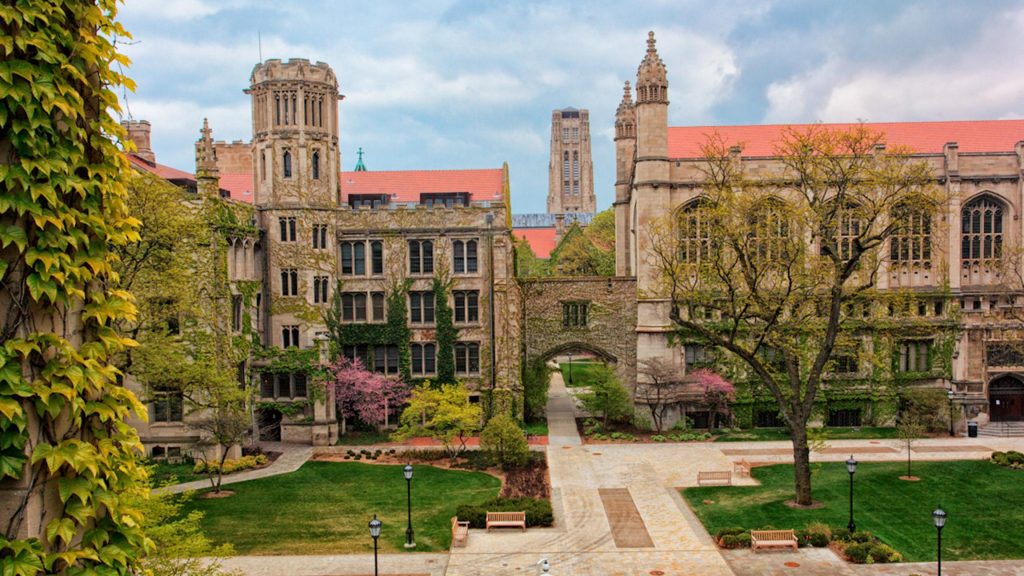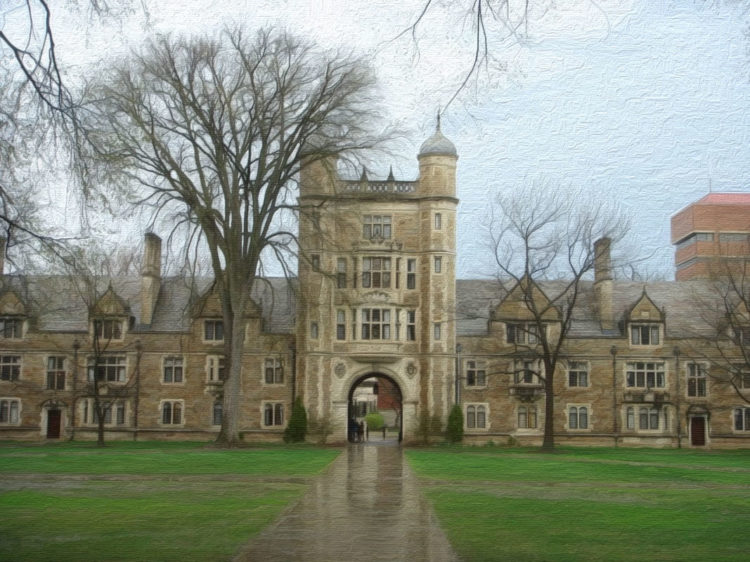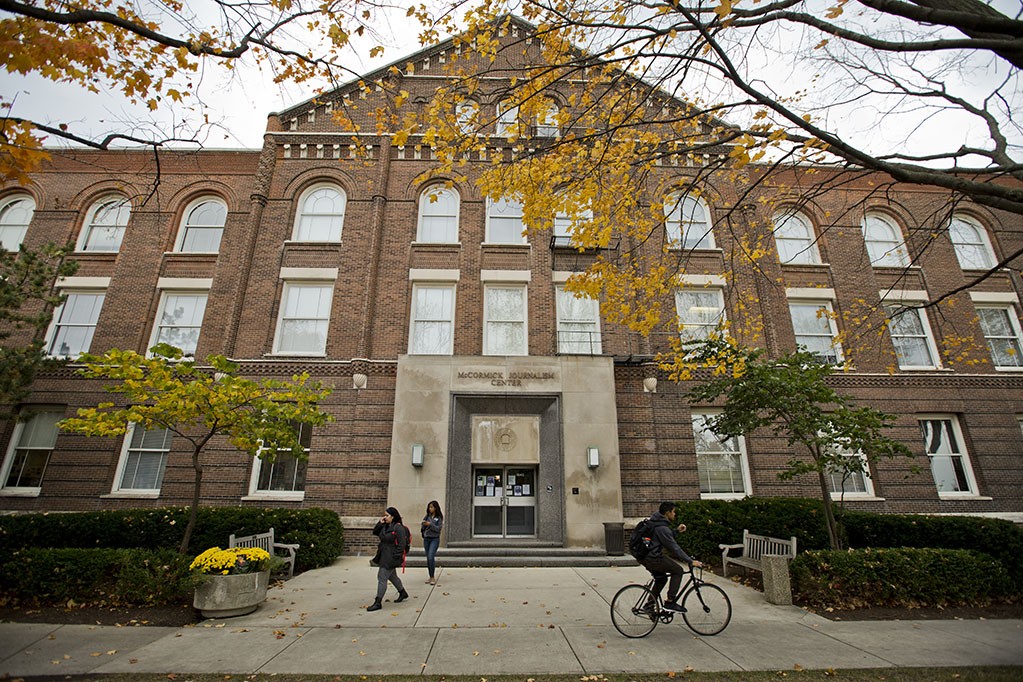| Rank | School | Location |
|---|---|---|
| 1 | Harvard University | Cambridge, Massachusetts |
| 2 | Johns Hopkins University | Baltimore, MD |
| 3 | University at Buffalo | Buffalo, New York |
| 4 | University of Pennsylvania | Philadelphia, PA |
| 5 | Cornell University | Ithaca, NY |
| 6 | University of Chicago | Chicago, IL |
| 7 | Thomas Jefferson University | Philadelphia, PA |
| 8 | Columbia University In The City Of New York | New York, NY |
| 9 | University of Michigan, Ann Arbor | Ann Arbor, MI |
| 10 | Northwestern University | Evanston, IL |
This is a ranking of the best Public Health master's programs in the U.S. This ranking is designed for students to make informed college and degree decisions for finding the best school of public health, and best Public Health masters programs.
Master of Public Health degrees offers professional training alongside intensive courses. Students in public health programs at public health schools study for eventually attaining careers that will aide and protect population and environmental health.

A master's in Public Health program (mph program) is often interdisciplinary. A given Public Health program may study the patterns and prevention of health trends and concerns, along with health education. The field supports social welfare and community health efforts.
Many mph programs offer cultural competency training and a comprehensive social approach. Students wanting to find the right public health program are encouraged to decide what area of public health they want to focus on. This will likely inform which public health programs and school of public health they choose.
Students can study many facets of public health, including:
- occupational and environmental health science
- maternal and child health
- international public health
- global public health
- community health
- environmental health
- health services administration
- public health education
- health promotion
- health education
- maternal and child health
- urban public health
Courses can include:
- statistics
- global health epidemiology
- biosecurity and disaster preparedness
- public health nutrition
- health promotion
- public health history
- economics
- infectious diseases
- behavioral biology
- global health program design
- population dynamics

A public health program may also offer public speaking training and communication courses. Many programs require students to choose a specialization. While some programs are open to recent graduates, many require full-time work before enrollment.
Graduates often seek work as a liaison between the scientific, medical community and governmental arms. Graduates find work with health organizations, federal and private health agencies, or schools. Public health professionals focus on tracking health issues in communities and advocating for solutions. There are many roles students can occupy in that process at public health organizations.
Many of these public health programs offer dual degrees. Students pursuing other higher education degrees can combine their studies for higher efficacy.
These programs are on-campus public health programs, where students attend school in-person. There are master of public health programs available as fully online programs as well. Students taking public health online courses often get the same quality of instruction as the best public health schools can offer on-campus. Master's degree programs in public health can provide a competitive advantage when seeking employment.

The Best Public Health Master's Programs
For this ranking, we considered the academic influence of the universities in the subject of Public Health, their master's degree programs in particular (such as the coursework variety), and their academic influence. To determine the academic influence, we consulted the objective ranking of Public Health schools at AcademicInfluence.com. Academic Influence uses a proprietary method of ranking based on the influence of these universities by publications and citations written by faculty and alumni.
Harvard University
Cambridge, Massachusetts

Harvard University offers a Master of Public Health. The degree programs prepare students for careers in professional practice, research or academia.
Harvard offers two variations to their master's program: a 45 and 65 credit option.
The shorter track is for students who have already earned another master's or postgraduate degree or have earned a bachelor's degree with at least five years of professional public health experience.
The longer track only requires a bachelor's degree and at least two years of professional experience. The master's curriculum emphasizes broad knowledge and career specialization.
Students learn analytical skills for real life problem solving and then put their answers to the test.
All master's students choose a field of study. Some options include epidemiology, global health, and health and social behavior.
Students at Harvard enjoy a strong alumni network and access to world-class facilities. They'll have the chance to work with the Harvard Medical School, Brigham and Women's Hospital, Boston Children's Hospital, the Dana-Farber Cancer Institute, and more.
Credit requirements: Master of Public Health has a 45 credit and 65 credit option. The doctorate is a three year program, with an option to extend to four years.
Selection of courses: Core Principles of Biostatistics and Epidemiology for Public Health Practice, Public Health Policy and Politics, Social, Behavioral, and Structural Determinants of Health, and Introduction to Economics with Applications to Health and Development.
Admission and transfer information: Applications are submitted through SOPHAS. Applicants also submit a statement of purpose, official test scores, three letters of recommendation, a resume and all transcripts. The Harvard Chan School accepts no transfer credit.
Accreditation: The Harvard T.H. Chan School of Public Health is accredited by the Council on Education for Public Health.
Johns Hopkins University
Krieger School of Arts and Sciences and the Johns Hopkins Bloomberg School of Public Health
Baltimore, MD

Johns Hopkins University offers a combined Bachelor of Arts/Master of Sciences in Public Health, a Master of Science in Public Health (MSPH), and a Master of Public Health (MPH).
The combined program is a joint effort of the Krieger School of Arts and Sciences and the Johns Hopkins Bloomberg School of Public Health.
The combined program prepares students to combine intensive study with real world application. Students receive their degree in health policy, occupational and environmental hygiene, or international health.
The MPH provides students with a broad-based education and specialized training. Students come with work experience in the health field. They study cross-related fields alongside gaining competency in the major disciplines.
The MSPH is designed for students without health-related experience. The program is department specific. The MSPH splits between four departments: Department of Health Policy and Management; Department of Health, Behavior and Society; Department of International Health; and the Department of Population, Family and Reproductive Health.
Students prepare to integrate their intensive knowledge to real-world problems. Each department within the Bloomberg School has access to many top-notch facilities and centers off campus. Each department also contributes hundreds of peer-reviewed published research articles.
Credit requirements: The Master of Sciences in Public Health degree can be completed in two years with 64 semester credits. The Master of Public Health requires 80 quarter credits, which is either 11 months of full-time coursework, or part-time in two or three years.
Selection of courses: Biologic, Genetic and Infectious Basis of Human Disease, Application of Negotiation and Mediation for Public Health Professionals, The Social Determinants of Public Health, and Population Dynamics and Public Health.
Admission and transfer information: MPH Applicants must have a minimum 2 years of full-time, post-baccalaureate, health-related work experience prior to matriculating.
This combined program is only available to undergraduates currently studying at Johns Hopkins. Students must apply during their junior year.
Students submit a SOPHAS Express application. This includes official transcripts, standardized test scores, an English proficiency test score, three letters of recommendation, a resume, and a personal statement. No program accepts transfer credit.
Accreditation: The Bloomberg School of Public Health is accredited by the Council on Education for Public Health.
University at Buffalo
Buffalo, New York

The University at Buffalo offers a Master of Public Health program.
The MPH program structures around 22 core competencies in the public health field. Through core courses and specializations, students prepare for critical thinking and communication to other professionals and communities.
The core courses give students critical thinking tools with a thorough understanding of scientific principles and methodologies. Students select one of six concentrations, including an online individualized option. All concentrations require a field training experience and capstone project.
Students take their knowledge and choose a health site to put it to practice. They'll be supervised by one-one-one faculty mentors as they lead communities and individuals.
Students have the chance to publish their field training experience in their capstone project. The capstones are reviewed through the Journal of Public Health Student Capstones (JPHSC). MPH graduates from the University at Buffalo have a 100 percent job placement rate.
Credit requirements: The MPH program requires 43-49 credits.
Selection of courses: Public Health Professionalism and Team Work, Biological Basis of Public Health, Contemporary Issues in Public Health, and Principles of Epidemiology.
Admission and transfer information: Admitted students should have a bachelor's degree, a GPA of 3.0 or above, a personal statement, contact information for three references, and complete transcripts. Up to nine transfer credits can be accepted.
Accreditation: The School of Public Health and Health Professions is accredited by the Council on Education for Public Health.
University of Pennsylvania
Philadelphia, PA

The University of Pennsylvania's Master of Public Health Program (MPH) is offered through eight schools at the university.
The program is housed in the School of Medicine, but utilizes faculty from programs like the dental and business school. The program aims to increase collaboration between disciplines for research and practice.
The flexible program offers full-time and part-time option with a 5 to 1 faculty ratio. Students choose a track: generalist, global health, and environmental health. Fieldwork in the student's area of specialization and a capstone project close out the graduate program.
Students in the generalist track gain the flexibility to stay general or go specific in their training. Global health students study an interdisciplinary approach to theory and practice. Environmental health students study identifying, investigating, bettering, and communicating environmental health risks to urban communities.
Credit requirements: The MPH program requires 28 credits minimum. The program takes two years full-time.
Selection of courses: Public Health Law & Ethics, Epidemiology of Infectious Diseases, Public Health Theories & Frameworks, Environmental and Occupational Health, and Behavioral and Social Sciences in Public Health.
Admission and transfer information: Students apply through the SOPHAS. They'll also submit recent test scores, TOEFL scores if applicable, official transcripts, current resume, three letters of recommendation, and a brief personal statement.
Accreditation: The Penn MPH is accredited by the Council on Education for Public Health (CEPH).
Cornell University
Ithaca, NY

Cornell offers a Master of Public Health. Classes are offered interdepartmentally with a focus on community engagement and readiness.
The program balances traditional knowledge and soft skills, like leadership and public speaking.
The two year program offers two concentrations: infectious disease epidemiology, and food systems and health.
Students in all programs focus on building their knowledge base. They will be tested on situational competency and ability to bring their research into practical use. Their ability to integrate knowledge into community crises is evaluated through at least 25 "products".
The products are developed with future employers in mind. Students graduate with an extensive portfolio of the work they have already done and are ready to implement. Students also commit to their communities through their studies.
All students volunteer with at least 4 local community organizations. Faculty assist students in applied practice and integrated learning experiences. The program is led by experts across fields and across the university. Their divided expertise helps prepare students to tackle problems across many levels, including state and international scales.
Credit requirements: 50 credits over four semesters and a summer
Selection of courses: Public Health Leadership and Ethics, Epidemiology in Practice, Biostatistics for Health Sciences, Public Health Practice - Monitoring & Evaluation, and Food Systems Approach to Food Safety.
Admission and transfer information: Applicants submit through SOPHAS. Students also submit transcripts, GRE scores, resume, personal statement, statement of intent, three reference letters, and TOEFL if require. Students will also complete a Cornell Graduate School Supplemental Application.
Accreditation: The Master of Public Health is accredited by the Council on Education for Public Health.
University of Chicago
Chicago, IL

The University of Chicago offers a Master of Science in Public Health Sciences for Clinical Professionals (MSCP).
The MSCP is designed for enhancing those with doctoral-level expertise already in a clinical field, such as medicine, nursing or social work. Many students are concurrently enrolled in a fellowship or clinical training program. The MSCP program focuses on research methods for public health and clinical research. Students study biostatistics, epidemiology and health services and a selection of electives.
Students finish the program by completing a master's paper, reviewed by two faculty members.
The doctoral program centers on an interdisciplinary population-based research curriculum. Students prepare to design and conduct ethical and methodological research in public health. The program's small size and high faculty ratio means specialized research goals are tailored to each student.
Students have access to faculty across the university. Doctoral students complete core curriculum and select a major and minor field of study. The major field may be epidemiology, biostatistics or health services research including health economics. The minor field may be a different field within the program or another field at the University, such as computer science, sociology or policy.
That study guides them in completing their dissertation. Students also student-teach for two quarters and participate in rigorous research. The department offers weekly seminars in public health topics to blend learning outside the classroom.
Credit requirements: The MSCP requires one year of full-time study and the PhD program takes around five years.
Selection of courses: Applied Regression Analysis, Biostatistical Methods, Epidemiology and Population Health, Health Services, Research Methods, and Introduction to Causal Interference.
Admission and transfer information: Applicants for the MSCP must have completed or be about to complete their doctoral-level clinical degree. Applicants for both programs submit their official transcripts, 3 letters of recommendation, a candidate statement and, if required, official TOEFL scores.
Accreditation: The University of Chicago is accredited by the Higher Learning Commission.
Thomas Jefferson University
Philadelphia, PA

Thomas Jefferson University offers a Master of Public Health and a Graduate Certificate in Public Health. Both programs are housed in the Jefferson College of Population Health. The College aims for competency in public health knowledge areas.
The programs include tailored field work and capstone projects. Alongside key competencies, the Master's curriculum stresses interdisciplinary goals. Leadership, communication skills, and cultural competency are also emphasized.
The master's program has four concentrations for advanced study.
Students can choose their concentration:
- public health analytics
- public health policy & advocacy
- healthcare quality & safety
- public health practice
Many students come to the program with a bachelor's degree in a related field or work experience in public health. It is also possible to combine another course of graduate study.
The graduate certificate option includes classes that can all be later applied to the Master's curriculum. The certificate's curriculum includes three core courses and three electives to further advanced knowledge.
Credit requirements: The certificate requires 18 credits. The Master of Public Health degree requires 45 credits.
Selection of courses: Foundations of Policy & Advocacy, Fundamentals of the U.S. Healthcare System, Society, Behavior & the Environment, Fundamentals of Health Statistics, and Fundamentals of Epidemiology.
Admission and transfer information: Applicants for both programs submit their SOPHAS application, resume, transcripts, test scores, personal essay, and three recommendation letters.
Accreditation: The Master of Public Health (MPH) Degree Program is accredited by the Council on Education for Public Health.
Columbia University In The City Of New York
New York, NY

Columbia University in the City of New York offers a Master of Public Health.
Students in the Master of Public Health program begin with a core curriculum divided into six "studios." Each studio addresses a public health core competency. Faculty guide students in asking difficult questions that cut across disciplines.
The first semester is intensive, with faculty encourages students to pursue no extracurricular activities. After the first year, students participate in an approved practicum.
The Master of Public Health also offers an accelerated track (one year completion) and an executive track. The two doctoral programs offered by the Mailman school train students to apply new knowledge to health issues. The programs differ in their emphases.
These concentrations include biostatistics, epidemiology, environmental health sciences, population family health, and sociomedical sciences.
Credit requirements: The Doctor of Public Health requires 30 credits minimum beyond the requirements for the Master of Public Health. The Master of Public Health requires 42 credits minimum.
Selection of courses: Quantitative Foundations, History of Public Health, Program Planning and Evaluation, Systems Thinking, Comparative Healthcare Systems.
Admission and transfer information: Applicants apply through the SOPHAS. Applicants also submit three letters of recommendation, required test scores, a personal statement, resume, TOEFL scores, and a writing sample for doctoral students.
Accreditation: The Master of Public Health is accredited by the Association of Schools of Public Health.
University of Michigan, Ann Arbor
Ann Arbor, MI

The University of Michigan at Ann Arbor offers a Master of Public Health, Master of Science in Health Administration, and a Master of Science in Public Health.
There are six departments available in the programs, plus an online track option for the MS and MPH degrees.
Each degree is completed within one department. The departments include Biostatistics, Environmental Health Sciences, Health Management and Policy, Nutritional Sciences, Epidemiology, and Health Behavior and Health Education. More than 200 professors and research scientists work together between all the departments.
All students complete their required core competencies, delineated by the Council on Education for Public Health. Students have the opportunity work with 34 research centers.
They can also take advantage of public health opportunities in their community and globally. Faculty often lead ventures to share and implement research.
The MPH and MHSA are designed for well-rounded individuals seeking either management or professional positions.
Credit requirements: The Master of Public Health program requires 60 credits.
The Doctor of Philosophy takes four years to complete, after the master's level courses.
Selection of courses:
- Communication Fundamentals
- Public Health Systems
- Policy And Management
- Leadership Skills For Inter-professional Practice
- Environmental Epigenetics and Public Health
- Analysis Of Biostatistical Investigations
Admission and transfer information: All students submit the SOPHAS application, transcripts, statement of purpose and objectives, two essays, letters of recommendation, and official test scores.
Accreditation: The School of Public Health is accredited by the Council on Education for Public Health.
Northwestern University
Evanston, IL

Northwestern University offers a Master of Public Health and several combined degree programs.
Those include a Master of Public Health and Doctor of Philosophy, a Master of Public Health and Doctor of Medicine, and a Master of Public Health program and Doctor of Physical Therapy.
The Master of Public Health curriculum prepares students to move between their professional fields and public health. Students include health care professionals and research specialists. The program is pre-professional and is not research-oriented. It therefore does not culminate in a thesis, unless in a combined program.
The Master of Public Health by itself takes one to two years. The dual degrees can be completed concurrently. The MPH and DPT degree, for example, can be completed in three years. This program includes an applied practice experience, which includes 160 hours of practice work on site. It also includes a culminating experience, bridging theory with a capstone project.
Credit requirements: Credit requirements vary. Programs take one to five years.
Selection of courses:
- Public Health Law
- Promoting Healthy Youth Development
- Survey Design & Methodology
- Artificial Epidemics and Changes in Human Culture
- Infectious Disease Epidemiology and Prevention
- Programming for Statistical Analysis
Admission and transfer information: Students applying for any program use the SOPHAS. Students submit their statement of purpose, three letters of recommendation, and test scores. Applicants for the dual degrees must first be admitted to their doctoral or graduate program. Credit from concurrent or previous graduate programs can be transferred the Master of Public Health.
Accreditation: The Master of Public Health is accredited by the Council on Education for Public Health.
Public Health Programs
Public health schools are often within the colleges or departments of the social and behavioral sciences. Students in mph programs learn about community health sciences and environmental health sciences. In the community health sciences domain, students learn about behavioral and community health education, public health administration and public health communication.
Global public health programs teach students the same principles but on a global scale. Students learn about global health epidemiology, global environmental health sciences, global health policy, global environmental sustainability, and global health promotion.
College data sources:
- Harvard University
- Johns Hopkins University
- University at Buffalo
- University of Pennsylvania
- Cornell University
- University of Chicago
- Thomas Jefferson University
- Columbia University In The City Of New York
- University of Michigan, Ann Arbor
- Northwestern University
More resources:
- The Best Online Healthcare Administration Degrees
- The Best Online MHA Programs: Master’s in Healthcare Administration
- Online Health Education Degrees | A Guide For Students
- Online Health Informatics & Health Information Technology Degrees

